01:50
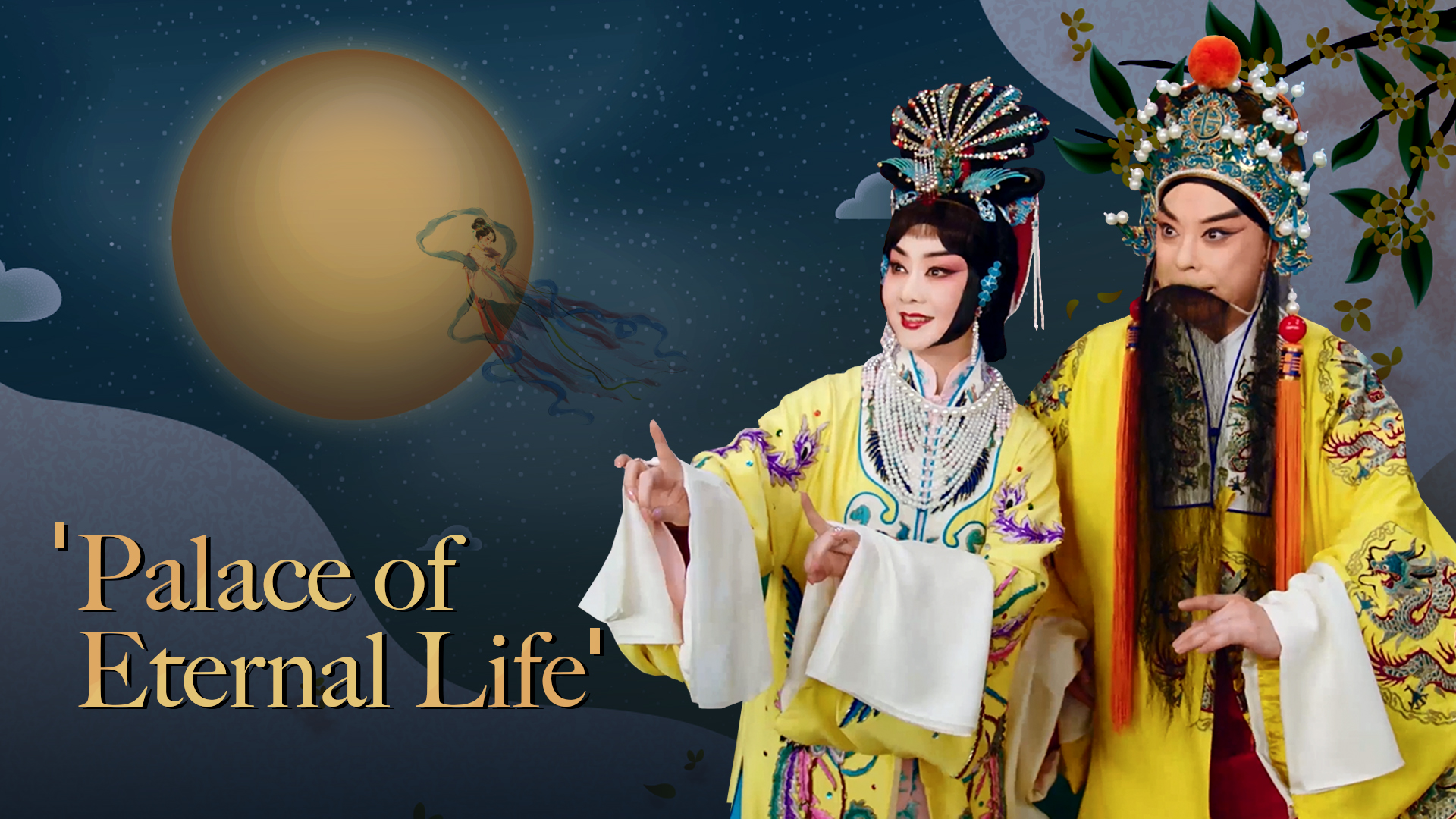
"Palace of Eternal Life," a Peking Opera classic that resonates with many generations, is a great option for family entertainment during the Mid-Autumn Festival, a major Chinese traditional festival.
An adaptation of the play of the same name written by famous playwright Hong Sheng during the Qing Dynasty (1644-1911), the masterpiece recounts the everlasting love story of Emperor Xuanzong of the Tang Dynasty (618-907) and his favorite concubine Yang Yuhuan.
"Palace of Eternal Life" is considered one of China's four great classical dramas, along with "The Peony Pavilion," "The Peach Blossom Fan" and "Romance of the Western Chamber."
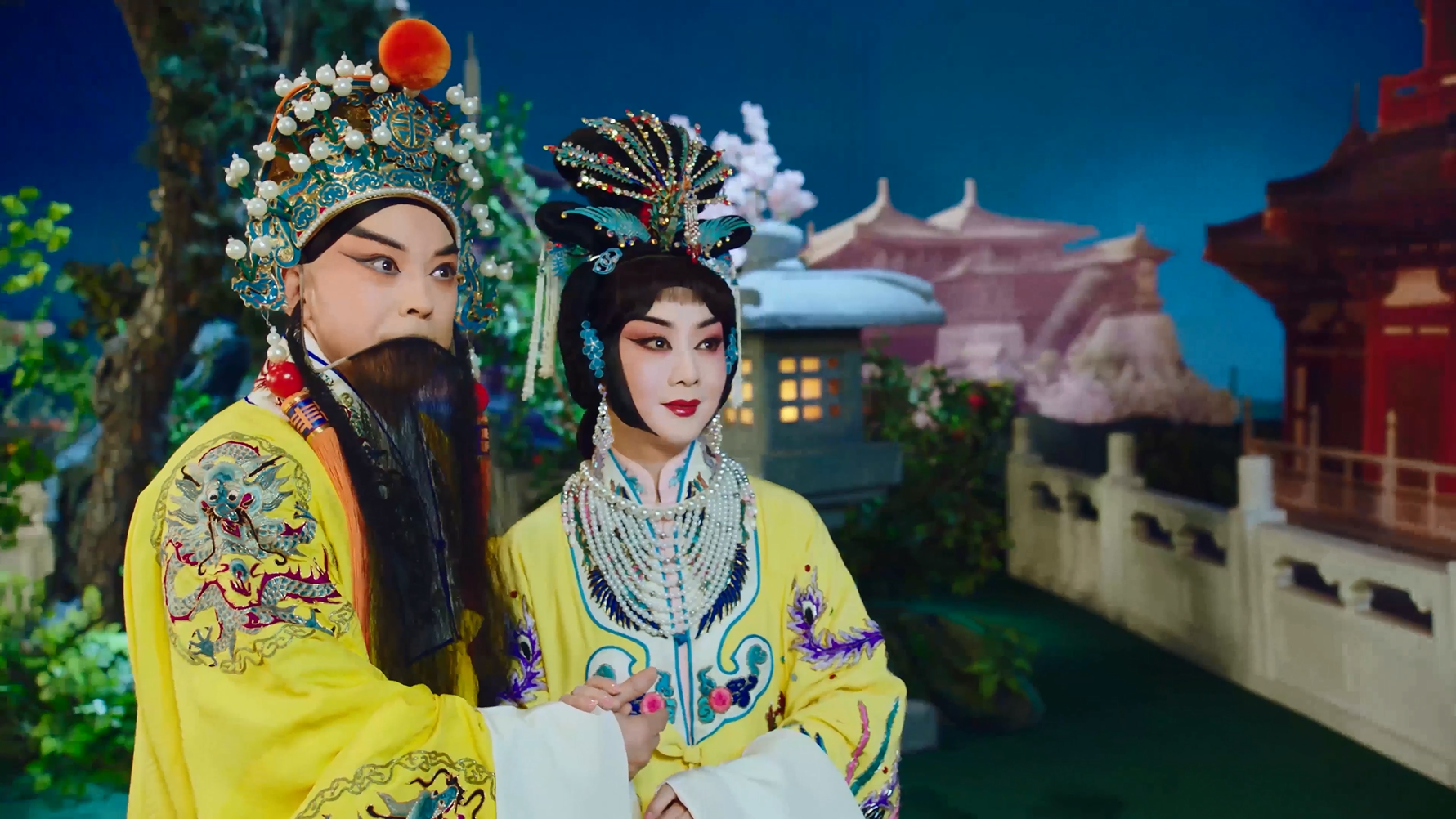
A still from "Palace of Eternal Life." /National Peking Opera Company
A still from "Palace of Eternal Life." /National Peking Opera Company
The play has various adaptations featuring different traditional operas such as Kunqu Opera. It has also seen several versions performed by renowned Peking Opera artists, such as the master Mei Lanfang (1894-1961) and veterans Yu Kuizhi and Li Shengsu.
The acclaimed work is a five-act play, featuring a large body of earlier literature and legends, and is unique in its overall form and lyric exposition.
It includes a household fairytale about the goddess "Chang'e Flying to the Moon", one of the most popular legends regarding the moon and the origin of the Mid-Autumn Festival.
Legend of Chinese goddess of the Moon
It is said that in ancient times, 10 suns existed in the sky, scorching many crops and people to death, and it was the hero Houyi, who, with his great strength, shot down nine of the 10 suns and saved lives.
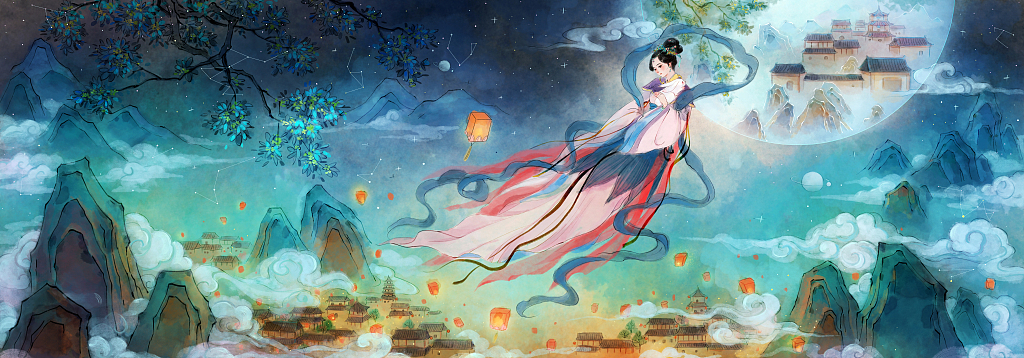
The opera features a household fairytale about the goddess Chang'e flying to the Moon. /CFP
The opera features a household fairytale about the goddess Chang'e flying to the Moon. /CFP
Houyi was rewarded with the elixir of immortality which, if taken, would help him to ascend immediately to heaven and become a god. While the archer still lived on the Earth, he fell in love with Chang'e and married her. The couple decided to drink the potion together on the 15th day of the eighth lunar month when the moon was round and bright.
Happiness, however, didn't last long. A villain named Pangmeng suddenly broke into their home and demanded Chang'e hand over the elixir while Houyi was out hunting. Knowing that she could not defeat Pangmeng and having no other choice, Chang'e drank the elixir all by herself and had to leave her husband.
She decided to fly to the moon, as it is closest to the Earth. After she left, her husband missed her a lot, so on the day of the full moon he placed her favorite foods on the table.
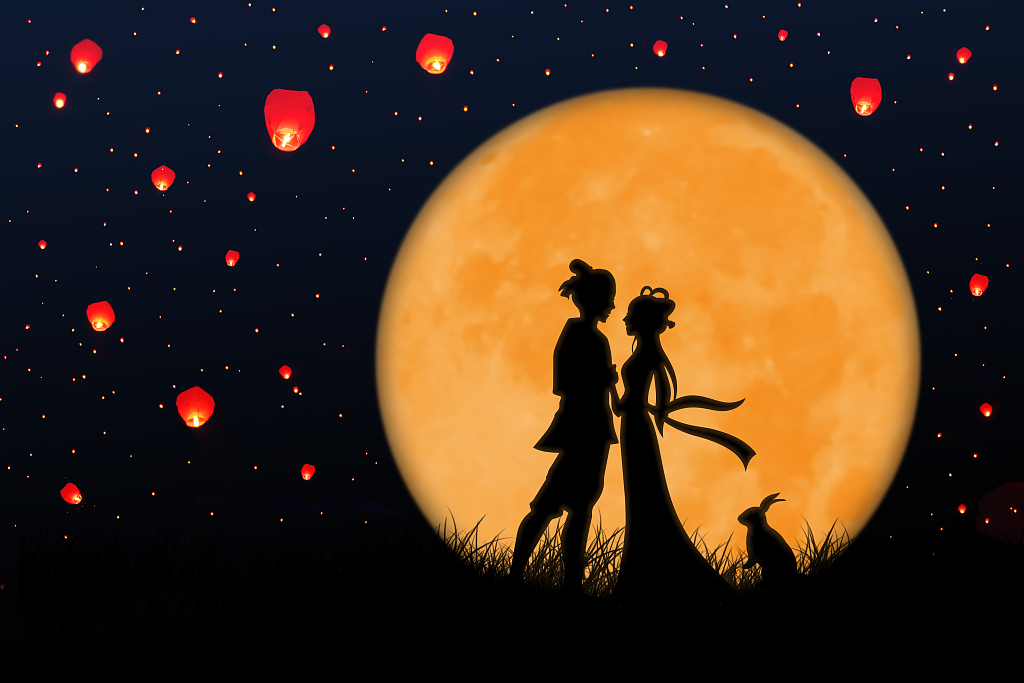
The tragic love of Chang'e and Houyi has inspired countless art creations in forms, including "Palace of Eternal Life."
The tragic love of Chang'e and Houyi has inspired countless art creations in forms, including "Palace of Eternal Life."
The tragic love of Chang'e and Houyi has inspired countless art creations in forms, including "Palace of Eternal Life," in which Yang cited the tragedy many times to express her hope that their love will last forever and prayed for a different ending for their own story.
Under the moon, the two made the famous vow: "On high, we'd be two lovebirds flying wing to wing, on earth, two trees with branches twined from spring to spring."
"Chang'e Flying to the Moon" is one of the best-known legends related to the Moon and is widely told during the Mid-Autumn Festival, and Chang'e is regarded as the goddess of the Moon.
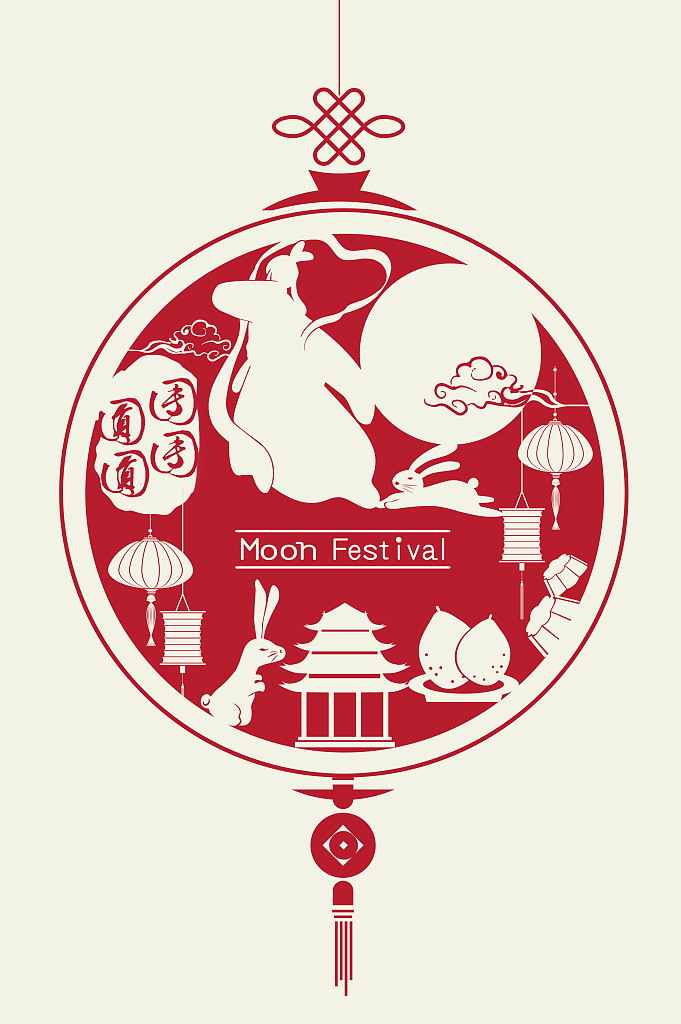
The Mid-Autumn Festival is also known as Moon Festival, or Mooncake Festival. /CFP
The Mid-Autumn Festival is also known as Moon Festival, or Mooncake Festival. /CFP
The festival, also known as Moon Festival or Mooncake Festival, observes harvest celebration on the 15th day of the eighth month on the lunar calendar, a full moon night, which falls on October 1 this year.
Watching traditional operas has been a tradition for many to celebrate the festival as the classics extend best wishes, virtue and values.
Combining various elements such as music, vocal performance, mime, dance and acrobatics, Peking Opera is the most dominant form of Chinese opera enjoying great popularity among Chinese communities across the globe.
(Cover image by Gao Hongmei)